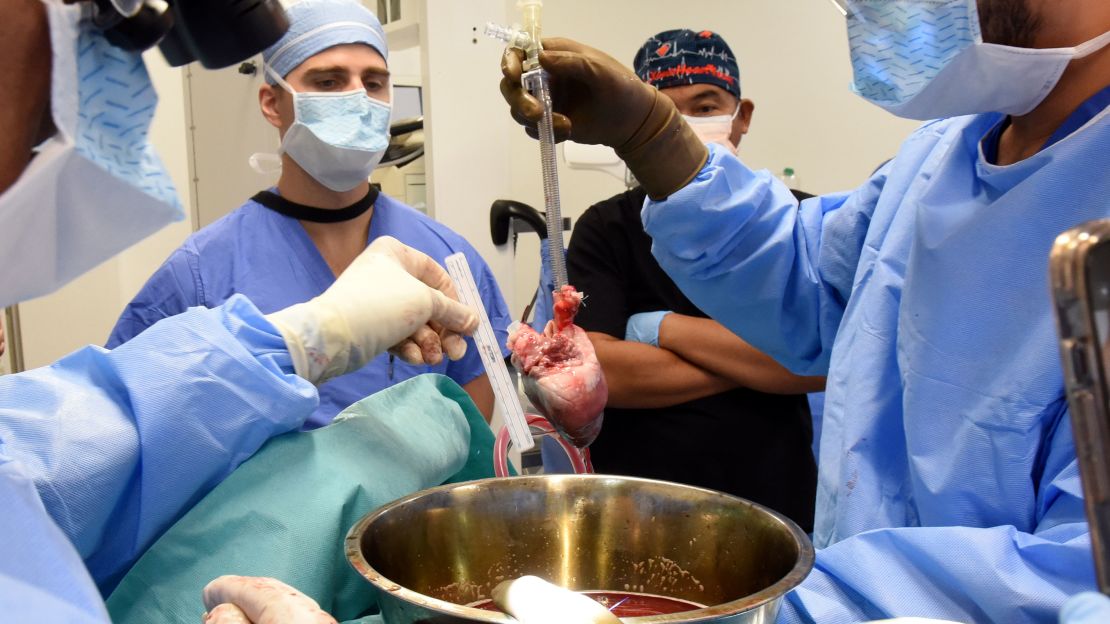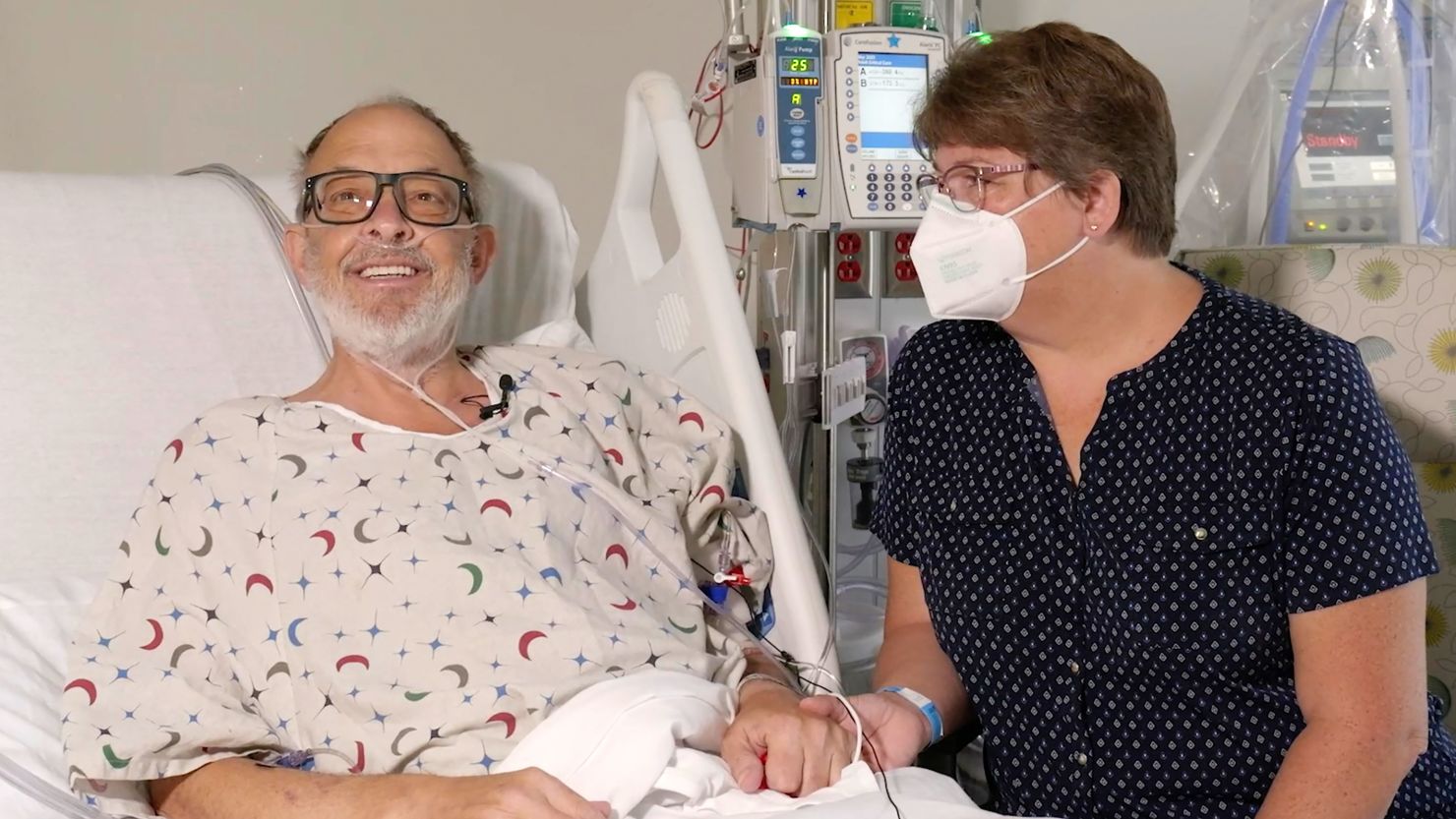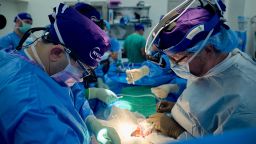For the second time ever, a pig heart has been transplanted into a living human recipient, the University of Maryland Medical Center announced on Friday.
The groundbreaking surgery was done on September 20 at UMMC by the same transplant team that preformed the first such experimental surgery in 2022.
In a news release, the hospital said the recipient, 58-year-old?Lawrence Faucette,?“is currently breathing on his own, and his heart is functioning well without any assistance from supportive devices.”
Faucette?had end-stage heart disease. He had pre-existing peripheral vascular disease and complications with internal bleeding making him ineligible for a traditional heart transplant, the hospital said in the release. He was admitted to UMMC on September 14 after experiencing symptoms of heart failure.
“My only real hope left is to go with the pig heart, the xenotransplant,” Faucette told the hospital in an internal interview several days before the surgery.
The experimental xenotransplant surgery was green lit under the US Food and Drug Administration’s “compassionate use” program. According to the?FDA, the program is “a potential pathway for a patient with?a serious or immediately life-threatening disease or condition?to gain access to an?investigational medical product?(drug, biologic, or medical device) for treatment outside of clinical trials when no comparable or satisfactory alternative therapy options are available.”
The pig heart used came from a genetically modified pig from Revivcor, a subsidiary the United Therapeutics Corporation. The pig had 10 genes edited, including three genes “knocked out” or inactivated to eliminate the alpha gal sugar in the pig’s blood cells, which can trigger a severe reaction in the human immune system, causing organ rejection. An additional pig gene was modified to control for the growth of the pig’s heart while 6 human genes were added into the pig’s genome to increase acceptance by the immune system. The?FDA?first approved the gene edited pigs in 2020 for potential therapeutic use and consumption.

Doctors are also treating Faucette with an experimental antibody treatment to further suppress the immune system and prevent rejection. He will be closely monitored for any signs of rejection or any development of pig related viruses. The donor pig was also closely screened for any signs of virus or pathogens.
“We are once again offering a dying patient a shot at a longer life, and we are incredibly grateful to Mr. Faucette for his bravery and willingness to help advance our knowledge of this field,”?said?Dr. Bartley Griffith, in the release.?Griffith is the surgeon who performed the transplant and is a professor of surgery at the University of Maryland School of Medicine.
The hospital said Faucette fully consented to the experimental treatment and was informed of all the risks. In addition, he underwent a full psychiatric evaluation and discussed his case with a medical ethicist.
Get CNN Health's weekly newsletter
- Sign up here to get The Results Are In with Dr. Sanjay Gupta every Tuesday from the CNN Health team.
According to the hospital’s news release, Faucette is a married father of two from Frederick, Maryland and a 20-year Navy veteran who had most recently worked as a lab technician at the National Institutes of Health before retiring.
“We have no expectations other than hoping for more time together,” said his wife Ann Faucette, in the release. “That could be as simple as sitting on the front porch and having coffee together.” There are currently no clinical trials that utilize pig organs for transplants in living human beings. The University of Maryland performed the first such experimental surgery on 57-year-old David Bennett in January 2022. Bennett died two months following the surgery.
While there were no signs of rejection in the initial weeks following the transplant, an autopsy concluded that Bennett ultimately died of heart failure from “a complex array of factors,” including Bennett’s condition prior to the surgery. Bennet had already been hospitalized and kept on a heart lung bypass machine for 6 weeks prior to the transplant. However, a case study by the doctors published in the Lancet also noted there was evidence of pig virus that had not been identified previously.
According to the federal government, there are more than 113,000 people on the organ transplant list, including 3,354 people in need of a heart. The group Donate Life America says that 17 people die each day waiting for a donor organ.

